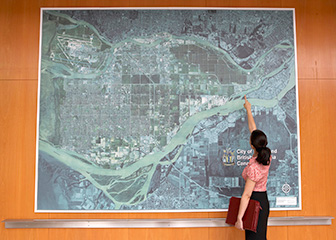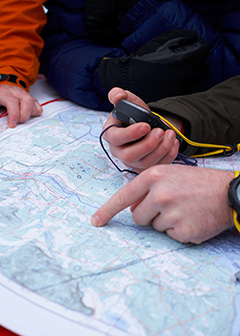Summary

| Quick Facts: Geographers | |
|---|---|
|
$72,800 per year
$35.00 per hour |
|
| Bachelor’s degree | |
| None | |
| None | |
| 1,600 | |
| 35% (Much faster than average) | |
| 600 | |
What Geographers Do
Geographers study the earth and its land, features, and inhabitants. They also examine phenomena such as political or cultural structures as they relate to geography. They study the physical or human geographic characteristics or both of a region, ranging in scale from local to global.
Work Environment
Most geographers work for the federal government. Many geographers work full time during regular business hours. Some do fieldwork, which may include travel to foreign countries or remote locations.
How to Become a Geographer
Those with a bachelor’s degree may qualify for some entry-level jobs, but these often require previous geography experience or training in geographic information systems (GIS). Geographers need at least a master’s degree for most positions outside of the federal government.
Pay
The median annual wage of geographers was $72,800 in May 2010.
Job Outlook
Employment of geographers is expected to grow 35 percent from 2010 to 2020, much faster than the average for all occupations. Employment growth will be fastest in the professional, scientific, and technical services industry.
Similar Occupations
Compare the job duties, education, job growth, and pay of geographers with similar occupations.
O*NET
O*NET provides comprehensive information on key characteristics of workers and occupations.
Contacts for More Information
Learn more about geographers by contacting these additional resources.













